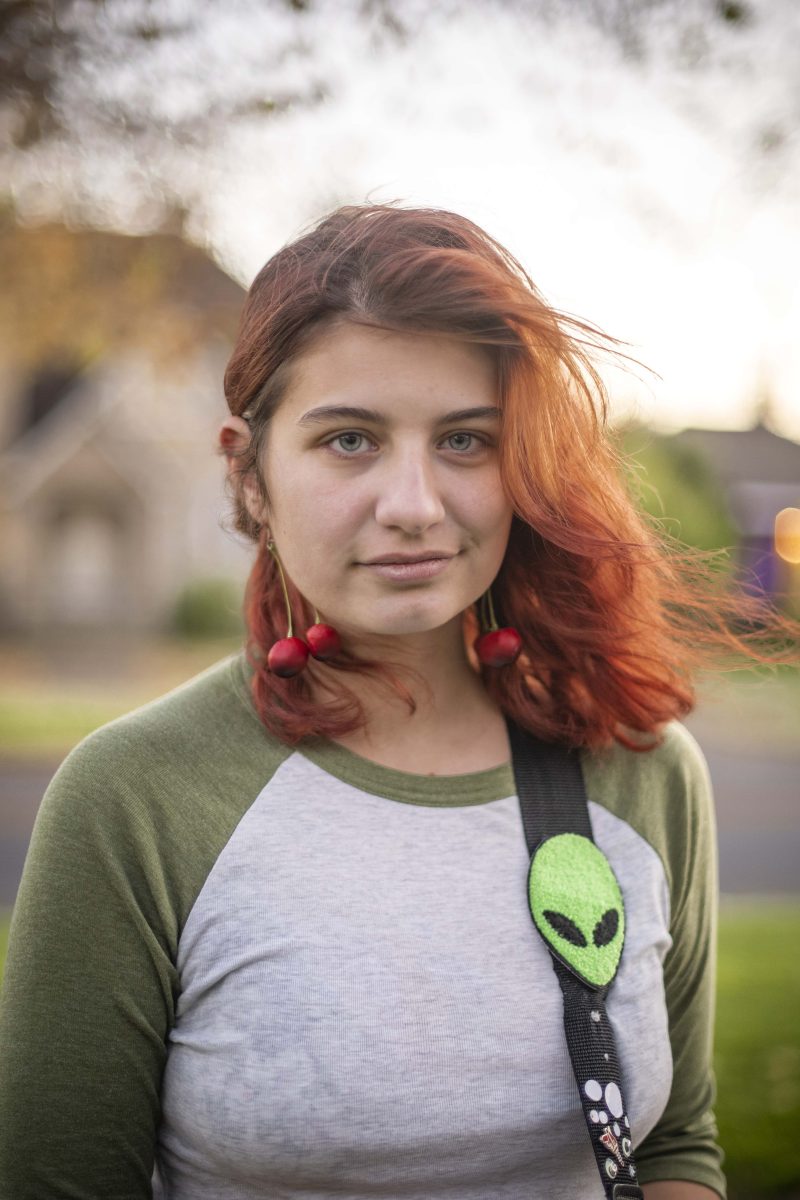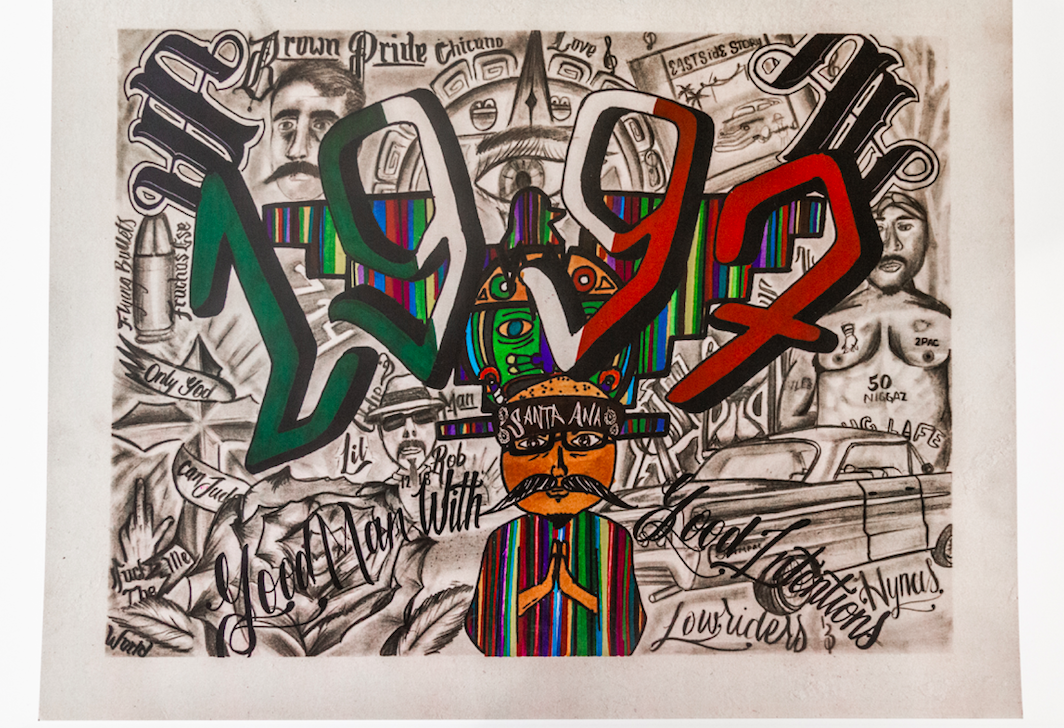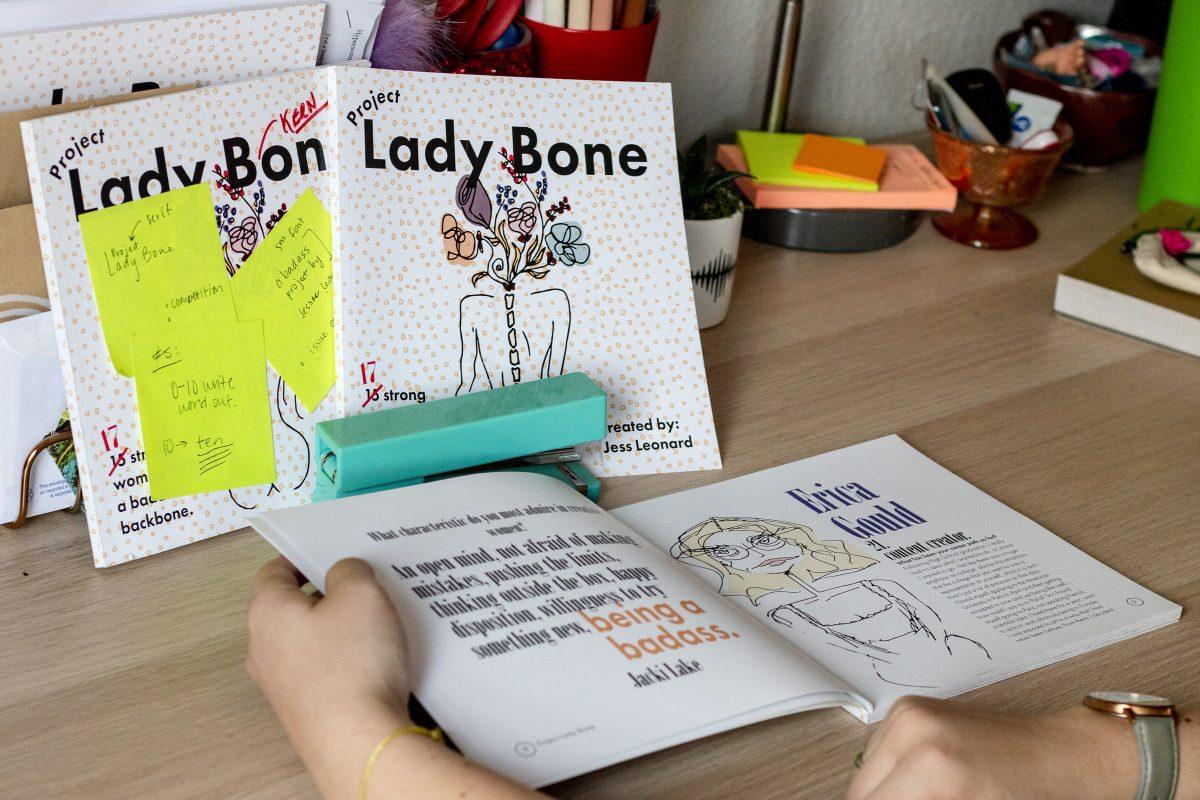Story by Terek Hopkins
Photo by Yzmari Duran
It is not an uncommon sight for students walking around campus to see a man like Jerry. We’ve all seen them—the radical Christians who push their beliefs onto whoever is unlucky enough to pass by. Whether they’re at the EMU or in front of the Duck Store, they are a daily presence that students are constantly trying to ignore. Jerry has been sitting outside the Lillis Business Complex for some time now. Like the rest of them, he is a deeply religious man—a Christian—and defines his beliefs as radical.
It’s not just Jerry’s clothes or what he believes that make him stand out in the crowd of bustling students. Sure, there’s his faded poncho, the color of which nearly matches that of his tan, wrinkled skin. And then there’s the blue cloth apron, smeared in what looks to be motor-oil, hanging from under the poncho. There’s his cardboard sign too; it’s white, scribbled with Sharpie letters and faces the flow of students. The message is not long or complex, it simply asks, “Is anything really right or wrong?”
When I sit down next to him, I realize that it’s not what Jerry has to say that makes him stand out. It’s not his attire either—or the fact that he looks a little bit like a lost time-traveler. It’s the expression he wears on his face. It’s the salt and pepper beard that almost touches his chest and the quiet smile framed by more pepper than salt. His smile looks as though it has been growing unkempt for as long as the beard. They’re details though, that on their own go all but overlooked. As most everyone passing by actively avoids making eye contact with the man. He’s that person who they know will try to spark up a conversation—that guy who they are very consciously pretending not to notice.
I put out my hand and introduce myself. His palm feels rough and calloused against mine. Jerry and I talk for a few minutes before he tells me how he just arrived in Eugene “about 2 days ago.” He explains that he is both a Christian and a Pilgrim, and how he, along with a group of others are “traveling around the country, talking to people about God and doing work to support ourselves.” He mentions how he builds bicycles—and how “a lot of the parts are just dumpster dived.” I think back to my first image of Jerry and his blue, oil-covered apron. “We are trying to live as the earliest Christians did,” he says.
Jerry isn’t a young man anymore, although at 51 he doesn’t look a day past 40.
With ease he recalls being only “13 when [he] got baptized.” A decision he made himself, considering his parents weren’t especially religious. Before his freshman year of high school, Jerry began teaching himself God’s Word in the New Testament. He never got around to finishing high school, but still taught himself Hebrew, Greek, and Spanish. When I ask why all this at such a young age? He tells me that he’s “always believed in God, for as long as [he] could remember.”
A girl walks by and gives Jerry, along with his sign, a skeptical look. He’s quick to notice the girl and with a helpful smile turns to talk to her. Before he can say anything though, she gives a courteous nod and turns to leave.
We’re “not about trying to heal all the world” he says. “We’re [just] trying to get individuals to know what we’re talking about.” He remembers first “learning about the love of God,” and how it “changed [his] whole approach.” How it was like “watching life on a black and white TV and suddenly it was all in color. The idea that God is Love. Not some abstract impersonal idea of Love. Because the abstract impersonal idea of love can’t love you. Only a person can love you.”
When the conversation ebbs, I ask Jerry about his family.
He nods and looks away for a moment. “Well my mom passed away. I loved my mom. I saw her not long before she died actually. And my dad; they got divorced before I left home. So I’ve seen him a couple times since then, but not in a very long time. I’m not sure what he’s doing now.”
I ask if he has any siblings. “A brother, Scott” he says. “We were close as kids, but I just, I haven’t felt it’s time. I just don’t feel like it’s time to see him yet. He’s just on a different path.”
As if on the same general topic, Jerry tells me about a woman who he had once planned on marrying, and how they’d “been praying about marrying for a long time” until he “realized that she didn’t want to anymore.” How she “had an interest in someone else,” and how Jerry “crashed” because of it. “Suddenly—” he says, “she just wasn’t there anymore.”
It makes me think about times in my own past and how I’ve felt the same way he describes having felt. And then, cued by the ring of a church-bell somewhere behind me, I realize that Jerry and I have been talking for at least an hour now. I wrap up our conversation by asking the only logical question left to ask. What was his favorite book as a kid?
He grins. “When my brother and I were very small, my mom read The Jungle Book to us.” Something about the memory makes him laugh.
Then I laugh too—because not in a million years could I have guessed that Jerry and I shared the same favorite childhood book. And with that I pick up my backpack, shake Jerry’s hand, and turn to leave. About 50 feet later, I turn around only to realize I don’t see Jerry anywhere. It’s only after a few seconds of searching that I spot him sitting there with his cardboard sign, smiling through his thick beard. Although, now his clothes don’t stand out like they did just an hour ago and Jerry doesn’t seem so out of place.
Placement is essential in order to make a statement, Jerry Williams and others who support his cause, use this idea to help them make a statement.













